(1).
About the Course
MBA in Financial
Technology regularly
referred to as MBA FinTech, is a brand new specialized interdisciplinary
curriculum aimed at producing a workforce with the facts and know-why skills
required to extrude and manage Fintech technology. This program is designed
for graduates who want to work in Financial Technology, Big Data Analytics in
Data Science, and Artificial Intelligence, as properly as folks who need to
develop their careers, especially engineers, mathematicians, physicists, laptop
programmers, undergraduates in enterprise and commerce, and different high-tech
professionals.
The
curriculum or syllabus furnished for postgraduate college university college
students taking MBA Fin tech is designed to assist them to put together and
plan their educational sports at some point in the route term. Graduates with an MBA Fin Tech degree may
expect to make INR 4,50,000-8,70,000 per year on average, with the potential to
earn INR 21,00,000-25,00,000 per year.
Admission
to MBA Fin Tech packages in India is primarily based totally on advantage and
front examination results. Aspirants need to have a bachelor's diploma in an
applicable discipline of take a look at with at least 50%-60% combination
marks, as nicely as admission examination scores, along with
CAT/GMAT/XAT/NMAT/MAT/and others and different key eligibility situations,
particularly through the university.
BirlaInstitute of Technology and Science, DY Patil International University,
Pondicherry University, IILM University, ITM University, Indira Gandhi NationalOpen University (IGNOU), Jain University Online and other major business
schools in India outside of the MBA program FinTech.
Furthermore,
the scope and profession possibilities for MBA FinTech graduates are
continuously expanding, giving aspirants the choice of pursuing better training
with inside equal discipline or deciding on a profession from a pool of
various activity possibilities such as Advisory Services, Financial Analysts,
Business Analysts, Compliance Analysts, Quantitative Analysts, Data Scientists,
Block-chain Experts & Developers, Product Managers, and more.
Course
Highlights
Here
is a quick rundown of some of the most important features and facts about MBA
Fin tech courses:
| Particulars | Value |
| Course Name | Master of Business Administration in Financial Technology |
| Course Level | Postgraduate |
| Course Duration | 2 years |
| Course Mode | Full Time, Part Time, Distance Learning, Online |
| Eligibility Criteria | Aggregate Percentage Required for Admission 50%-60% in bachelor’s degree |
| Admission Process | Entrance test + Merit-based |
| Examination Type | Semester-based |
| Entrance Exams | CAT,/*9, XAT, GMAT, NMAT, MAT, Other Entrance Exams |
| Average Annual Fee | INR 4,50,000-15,00,000 |
| Average Annual Salary | INR 6,00,000-20,00,000 |
| Top Recruiters | UPLERS, PayPal, Korn Ferry, Paytm, CRED, Aspiration, Matrix, Amazon, Walmart, VISA, Accord FinTech, Agile financial technologies, CoinDCX, Boston Consulting, Bai & Company, Goldman Sachs, BCG, Bain, and Company |
| Job Profile | Advisory Services, Financial Analysts, Business Analysts, Compliance Analysts, Quantitative Analysts, Data Scientists, Blockchain Experts & Developers, App Developers, Product Managers, Cybersecurity Experts, Risk Control Managers, Business Development Managers |
Why
study an MBA Fintech Course?
FinTech or Financial Technology collects and analyses facts in real-time and is
taken into consideration a financial revolution. It has changed how businesses
and banks and financial organizations handle financial services. MBA Fin tech
offers solutions that benefit organizations, particularly those that are new
and small. An MBA Fin tech program blends technology with economic trends to discover
novel methods to disrupt and enrich the financial industry.
An
MBA Fin tech diploma has several advantages and many of the highest compelling
motives to pursue this progressive and trending MBA software are mentioned
below.
(1).
Career Transformation
Learning
is a crucial talent that most businesses seek in potential candidates to
advance their careers. Because the notion of Fin Tech is still relatively new,
few people in the market have an MBA Fin Tech degree. Knowledge of FinTech can
help them make better decisions and contribute to the organization's success.
Employers value an MBA in Financial Technology as a useful asset that can give
them a competitive advantage over other candidates applying for the same
position.
(2).
Fin Tech Careers and Graduate Jobs
Since
MBA Fin Tech is any such booming industry, there are numerous process
potentialities and professional alternatives to be had for graduates. After
receiving an MBA Fin Tech degree, candidates can specialize in one of the most
current fields of finance, analyzing blockchain applications, virtual
currencies, gadget learning, and Big Data. Cyber security, Blockchain,
Compliance and Risk, Quantitative Analytics, and Artificial Intelligence are a
number of the pinnacle Fin Tech careers for graduates. FinTech has advanced
over the years, and graduates can now pick to paintings in tech-centered
regions or a number of different fields which includes operations, marketing,
and sales.
(3).
The FinTech Industry is Seeing Rapid and Consistent Expansion
FinTech is a thriving commercial enterprise all over the world, which include
India. Despite extraordinary worries approximately moving markets, the Fin Tech
enterprise has grown year after year. The international Fin Tech marketplace is
really well worth greater than USD two hundred billion. This enlargement has
made Fin Tech a famous process desired by the latest graduates. A FinTech
master's diploma offers experts a head beginning in this dynamic industry.
(4).
Engaging Environment
The
FinTech industry is at the forefront of the digital revolution, creating an
exciting and dynamic work environment. FinTech leaders are disruptive, and as
Fin Tech professionals, individuals will have the opportunity to advance within
the company and learn from innovative minds. Individuals also seek to improve
the way the world manages money, shifting society away from old - and often
antiquated - banking techniques and toward a more innovative, efficient future.
(5).
Being Up to Date with the Latest Technology
We
live in a world where technology is constantly evolving. As a result, staying
current on these improvements is critical. Freshers with no prior understanding
of this industry, as well as those looking to expand their existing knowledge
and skills, might pursue Fin Tech credentials. Whether they are finance
professionals or work in a different department of a financial organization,
staying up to date on the newest Fin tech trends is essential to make smarter
judgments.
(6).
No Middlemen
Almost
every company activity is being automated by technology, removing the need for
human interaction in routine operations. With everything in the financial
sector becoming computer-based, an MBA Fin Tech course is required to fully
utilize technology. With businesses becoming more reliant on technology and
online tools, Fin Tech and its innovations are undoubtedly the way of the
future. Fintech has diminished the function of the banking sector and is on
its approach to fully replacing it.
(2).
Admission Process
Admission
to MBA Fin Tech programs in India is based on merit and entrance exam results.
Aspirants must have a bachelor's degree in a relevant field of study with at
least 50%-60% aggregate marks, as well as admission exam scores, such as CAT, GMAT,
XAT, NMAT, MAT, and others, and other key eligibility conditions as specified by
the university.
Types
of MBA Fin Tech Courses
MBA
stages are to be had in a number of formats, ranging from full-time to online
ranges that can be finished from the consolation of one’s very own home. Each
fashion of MBA presents the possibility to advantage a complete knowledge of
enterprise and FinTech, however, which has to someone pursue? Here is an
overview of the various types of MBA Fin Tech programs available:
(1).
Executive MBA
Executive
MBA programs are designed for mid-career professionals who want to advance into
leadership positions. Because there is a strong emphasis on the experience that
each student brings, the MBA Fin Tech programs require at least 5 years of work
experience before applying. Part-time EMBA programs are typically taught in the
evenings or on weekends. This allows students to continue working and instantly
apply their knowledge and abilities in their business as they progress.
(2).
Two-Year Full-time MBA
One
of the most prevalent MBA programs is a two-year full-time program. Enrolling
in a two-year MBA Fin Tech program allows individuals to hone their essential
business abilities while delving into specialized themes. The first 12 months
will cowl essential subjects inclusive of strategy, communication, finance, and
marketing. During non-compulsory modules and consciousness intervals in 12
months two, college students can even have the possibility to pay attention to
subjects of their choice. They may also have the possibility to take part in a
summertime season internship, which could every so often cause full-time
employment to provide following graduation.
(3).
Part-Time MBA
If
candidates want to study for an MBA but do not want to spend time away from
their job, a part-time MBA Fin Tech may be the ideal choice. Part-time MBA
programs give working professionals the freedom to design a curriculum that
fits their schedule. Students frequently complete their degrees over a long
period, ranging from 2-5 years or more. Alternatively, candidates can enroll in
MBA Fin Tech with a weekly schedule of evening or weekend classes, allowing
them to complete the program.
(4).
Online MBA
Online
MBA programs allow students to earn degrees from the comfort of their own
homes, anywhere in the world. Online MBA Fin Tech programs will cover the same
subject as conventional MBA programs and will be taught by the same faculty.
They do, however, have the added benefit of providing a flexible learning
environment. Students can complete lessons when it is convenient for them and
study for a prolonged length of time, similar to a part-time program.
Eligibility
Criteria
To
be admitted to the MBA Fin Tech program, students must meet the basic
eligibility criteria. These are the eligibility requirements:
(i).
Candidates must have a Bachelor's Degree in BE, B. Tech, BCA, or any other
related degree with a minimum of 60% aggregate marks from a recognized
university.
(ii). Aside from that, students must pass an MBA entrance exam such as the CAT,
XAT, GMAT, NMAT, MAT, etc. with a high score to be admitted.
(iii). There is no upper age limit for entrance to any management program like
MBA FinTech.
Admission
Process
MBA
admission in India is a four-step process in all major MBA universities and
colleges. These four steps of the MBA admission process apply to all MBA
programs, including the MBA Fin Tech course. Students should be aware that
top-tier business schools in India use a rigorous screening procedure to choose
the best applicants.
Step
1- Register for the Entrance Exam and Apply
Admission
to top MBA colleges for MBA Fin Tech begins in the first week of
August/September and ends in the final week of November. Candidates seeking
admission to top MBA programs should register and apply for the applicable MBA
entrance exam, such as CAT/XAT/NMAT/GMAT, during the registration window. Most national-level MBA entrance tests, such
as the CAT and XAT, close registration in September and November, respectively.
Step
2- Appear in Any of the Entrance Exams
Those
who want to pursue a management course PGDM/MBA program specialized in
Financial Technology from top MBA colleges must appear in CAT, XAT, NMAT, or
any other applicable front examination this is appropriate with the aid of
using schools and enterprise colleges presenting MBA FinTech in India.
Step
3- The Selection Process
After
the MBA exam results are announced in January, most of the top business schools
will shortlist the qualified candidates for the final admission round based on
exam scores, academics, diversity, work experience, and other parameters as
determined by the respective B-school admission policy and weightage. Each
business school or college completes the process on its own.
Step
4- Final Admissions Process
All
shortlisted applicants might be required to take part in a Group Discussion
(GD), Written Ability Test (WAT), and Personal Interview (PI). Some B-colleges
moreover carry out GD and Extempore earlier than the PI round, while others do
GD-PI. Some schools additionally administer Psychometric checks to pupils. The
very last benefit listing can be organized and admission gives for the MBA Fin Tech
software can be made primarily based totally on their overall performance
inside the very last choice round, weightage granted to front scores,
instructional profile and diversity, paintings experience, and gender
diversity.
Accepted
Entrance Exams
As
formerly indicated, admission to MBA Fin Tech publications relies upon
applicants' undergraduate stages and the consequences of the doorway exams. The
following are a number of the maximum not unusual place admission checks for
college kids intending to pursue an MBA in Financial Technology in India:
| IGNOU OPENMAT | CAT |
| XAT | MAT |
| GMAT | SNAP |
| NMAT | |
Note:
Admission could be primarily based totally on the rating or rank attained
inside the front exam, in addition to a non-public interview and organization
discussion.
Skills
Required
Required
skills for the MBA Financial Management program are provided in the table given
below:
| Communication skills | Strong quantitative skills | Leadership qualities and team player |
| Finance knowledge | Trustworthy and dependable | Ability to perform well under pressure |
| In-depth knowledge of block-chain | An interest in numbers | Critical thinking and pulse on the business |
| Analytical skills | Motivated and ambitious | Data interpretation and analysis skills |
| Coding and programming skills | Soft skills | Handle multiple tasks and the ability to take criticism lightly |
| Knowledge about cyber security | Team working skills | Problem-solving skills |
Fee
Structure
MBA
Fashion Designing is a postgraduate management course for two years consisting
of four semesters. The common MBA in Fashion Designing prices tiers from INR
1,00,000-6,00,000 PA. Some of the MBA in Fashion design colleges are listed
below according to their fees structure:
| Name of College | Average Annual Fee(INR) |
| BITS Pilani | INR 55,000 |
| IIM Indore | INR 2,00,000 |
| IIM Calcutta | INR 3,75,000 |
| SP Jain Global Management | INR 2,00,000-3,00,000 |
| IIM Lucknow | INR 24, 000 |
Selection
Criteria
With merit-based selection, candidates are selected based on their academic
performance during their graduation exams. For admission-based selection,
students must take the entrance exam. Once candidates are qualified, they can
be admitted to any further admissions phase. Additional admission levels vary
from college to college.
(3).
Course Comparison
MBA
in Fin tech v/s MBA Finance
The
MBA in Fin tech complete shape is a Master of Business Administration in
Financial Technology, and it's far generally geared toward students those who
are interested in rapid career progression in the Technology practice, as well
as a comprehension of its components. The
table below showcases the differences between MBA in Fintech and MBA in
Finance:
| Parameter | MBA Fintech | MBA Finance |
| Course Name | Master of Business Admission in Financial Technology | Master of Business Administration in Finance |
| Course Overview | MBA in Financial technology is an emerging field that aims at improving the financial industry by using technology. | MBA Finance is a two-year postgraduate direction pursued with the aid of using individuals who need to make a profession in economic management. |
| Course Duration | 2 years | 2 years |
| Eligibility | Aggregate Percentage Required for Admission 50%-60% in bachelor’s degree | 50% Marks in Bachelors Degree |
| Average Annual Fee | INR 4,50,000-15,00,000 | INR 1,10,000-7,00,000 |
| Average Annual Salary | INR 6,00,000-20,00,000 | INR 7,00,000-15,00,000 |
| Top Colleges | BITS Pilani, IIM Calcutta, IIM Lucknow, and SP Jain Global Management offer online courses | NMIMS, SP Jain Institute of Management and Research, International Management Institute, IIM Bangalore, IIM Calcutta |
| Top Recruiters | HDFC, JP Morgan, ICICI, Goldman Sachs, HSBC | Paytm, PayPal, Robinhood, CITI, Korn Ferry |
| Job profiles | Blockchain Developer, Apps Developer, Financial Analyst, Product Manager, Compliance Expert, Cybersecurity Analyst, Quantitative Analyst, Business Development Manager | Corporate Analyst, Accounts Manager, Executive Assistant, Marketing Analyst, Marketing Manager, Finance Manager, Cashier, Investment Banker, Business Analyst, |
(4).
Top Colleges
Here
is a list of some of the most well-known and prestigious universities in India
that provide MBA Fin Tech programs to students:
| Name of College | Average Annual Fee(INR) | Location |
| MIT-SOB | INR 5,00,000 | Pune |
| Sri Sri University | INR 1,65,000 | Odisha |
| K J Somaiya Institute | INR 3,00,000 | Mumbai |
| Vignan's University for Science, Technology & Research | INR 1,70,000 | Andhra Pradesh |
| Xavier Institute of Social Service | INR 1,00,000 | Ranchi |
| Online Manipal | INR 1,50,000 | Sikkim |
| GITAM Institute of Management | INR 3,00,000 | Visakhapatnam |
| SCMS School of Business | INR 5,00,000 | Kochi |
| NMIMS | INR 3,00,000 | Mumbai |
| Indira Gandhi National Open University | INR 37,800 | Delhi |
| Birla Institute Of Technology And Science | INR 1,00,000 | Pilani |
| MIT World Peace University | INR 3,90,000 | Pune |
| IPE | INR 5,00,000 | Hyderabad |
| Delhi School of Business | INR 4,38,000 | New Delhi |
| NIBM | INR 3,00,000 | Pune |
| Taxila Business School | INR 1,00,000 | Jaipur |
| Pune Institute of Business Management | INR 7,95,000 | Pune |
| Chandigarh University | INR 5,96,000 | Chandigarh |
| Jain University | INR 12,00,000 | Bengaluru |
| D. Y. Patil International University | INR 8,00,000 | Maharashtra |
| ITM University | INR 10,45,000 | Madhya Pradesh |
| KL University | INR 10,00,000 | Andhra Pradesh |
| SPJIMR | INR 5,00,000 | Mumbai |
| Pondicherry University | INR 32,000 | Pondicherry |
| LBSIM | INR 3,00,000 | Delhi |
| IILM University | INR 8,10,000 | Gurugram |
(5).
Job & Placements
Students
who entire this path may be capable of stable a high-paying profession inside
the increasing FinTech startups, banks, and non-banking monetary enterprises.
After finishing an MBA Fin Tech degree, a character can discover employment in
numerous businesses. The present-day commercial revolution has ended in an
exponential enlargement inside the FinTech business, as have task
prospects.
Job
Profiles
The
following are some job opportunities available after completing an MBA in FinTech:
| Job Profile | Job Description |
| Data Scientists | An information scientist's function is to convert uncooked information into significant insights that corporations want to grow. These people sift thru a huge quantity of facts so that it will lay out the important software. |
| Business Development Manager | A commercial enterprise improvement manager's intention is to set up a plan that specializes in each customer's pleasure and economic gain. Long-time period studies are carried out to find out cutting-edge demands. |
| Compliance Experts/Analysts | A compliance expert's role is to ensure that a corporation complies with conventional norms and regulations. They must be well-versed in the field and must enforce norms at all levels. |
| Product Manager | A product supervisor is liable for overseeing the entire product improvement cycle. They also are in fee of figuring out and advertising and marketing destiny FinTech products. |
| Data Specialists | A records specialist's activity is to transform facts from hardcopy to virtual format. They make sure that the statistics are accurate and are concerned with the complete changing process. |
| App Developers | An app developer's task is to apply their programming information to create software programs and applications. As the call for online bills and economic control has grown, so has the preference for brand-new apps. App builders collaborate with coders and IT (Information Technology) groups to create an important application. |
| Risk Control Managers | They are in rate of danger control for a firm, its customers, shareholders, reputation, and assets. They examine an organization's threats and devise methods to avoid, transfer, or mitigate the risk. |
| Financial Analysts | A monetary analyst's activity is to forecast profits and control budgets. They compare the company's overall performance and recommend control on strategic decisions. |
| Blockchain Experts & Developers | A blockchain developer is a software programmer who specializes in blockchain technology. A blockchain is a publicly accessible data storage method. Blockchain is the fastest-growing FinTech business, and Bitcoin was created utilizing this technology. |
| Cyber security Experts/Analysts | It is their responsibility to make certain software program device protection in the course of the improvement process. They look for flaws and risks in software programs and hardware. |
Top
Recruiters
The
top Fin Tech recruiters are as follows:
| TCS | Aspiration | Accord FinTech |
| Big Bazaar | Bajaj General Insurance | NESTLE |
| TVS Motors | Global Data Research | Oyo Rooms |
| VISA | HDB Financial Services | PayPal |
| Walmart | Amazon | robin hood |
| UPLERS | HDFC Group | SBI Card |
| ITC | ICICI group | Ramco Cements |
| Walmart | Agile financial technologies | Paytm |
| Aarvee Associates | Invesco | Rane Industries |
| CRED | Korn Ferry | Talent place |
| Flipkart | Matrix | Reliance Trends |
| Bandhan Bank | Aegis | Swiggy |
| Cholamandalam Investment & Finance | Muthoot Fincorp | Reliance General Insurance |
| Future Supply Chain Solutions | Naukri.com | |
Average
Salary
Graduates
with an MBA Fin Tech degree can expect to earn a starting salary of INR
4,50,000-8,70,000 per year, with the potential to earn INR 23,00,000-25,00,000
per year. In general, different job descriptions will pay varying amounts.
Aspirants should keep in mind that this payment is not fixed and may vary
depending on a variety of factors. The compensation of a graduate is impacted
by factors such as designation, education level, experience, and location. The
table below shows the average starting pay for MBA Fin Tech graduates in India:
| Job Role | Average Annual Salary(INR) |
| Data Specialists | INR 4,00,000-5,00,000 |
| Business Development Manager | INR 6,00,000-8,00,000 |
| Compliance Experts/Analysts | INR 10,00,000-11,00,000 |
| Risk Control Managers | INR 12,00,000-14,00,000 |
| Blockchain Experts & Developers | INR 6,00,000-8,00,000 |
| App Developers | INR 4,00,000-6,00,000 |
| Financial Analysts | INR 5,00,000-6,00,000 |
| Data Scientists | INR 10,00,000-12,00,000 |
| Product Manager | INR 16,00,000-18,00,000 |
| Cyber security Experts/Analysts | INR 11,00,000-13,00,000 |
(6).
Career/Scope
MBA
in FinTech is a program designed to bridge the gap between management And
modern monetary era innovation and its packages in banking, finance, and
insurance. Professionals who choose to artwork on top of things inside the
data era or financial sectors can bear in mind taking an MBA in Financial
Technology as an option. It will offer college students the much-wanted
professional raise they require in phrases of income ability and gaining access
to this quickly evolving field.
This
will give an explanation for blockchain, layout thinking, virtual advising,
buying and selling systems, synthetic intelligence and device learning,
fairness crowdfunding, peer-to-peer financing, and cellular charge systems,
amongst different Fin Tech advances.
Career
options after the MBA in Fin Tech Management Course
There
are vast career opportunities after an Online MBA in Fin Tech Management. As
this field is not explored much, the job positions are new, and there is a
scope for increasing these fields.
So,
below are the fields in which one can find their desired job in Fin Tech
Management.
| Crowdfunding | Data Analysis | Payments |
| Blockchain and Cryptocurrencies | Cyber Security | Money Transfers |
| Peer to Peer lending | Billing | Wealth Tech and Robo Advisors |
| Mobile App Development | Artificial Intelligence and Machine Learning | RegTech |
| Data Science | | |
Scope
for Higher Studies
Graduates
of the MBA Fin Tech applications can constantly maintain their schooling with inside
the equal field. Students who complete this course may pursue the following
short-term, postgraduate, or doctorate courses:
(i).
Certified in Production and Inventory Management (CPIM)
(ii). Quantitative Finance Course
(iii). Financial Risk Management
(iv). Financial Planning And Services
(v). Ph.D. in Management
(vi). MPhil in Management
(vii). Certified Financial Planner (CFP)
(viii). Chartered Financial Analyst (CFA)
(ix). NCFM Certifications
(x). Company Secretary (CS)
(xi). Chartered Alternative Investment Analyst
(xii).Executive Program in Algorithmic Trading
Skills
that make you the Best MBA Financial Technology Graduate
As
financial technology is used by all industries in this age, aspirants apply to
transform them from wannabe brutes into wannabe financial technology
professionals. Some of the skills MBA students in Financial Technology must
have:
(i).
Financial Reporting
(ii). Interpersonal Skills
(iii). Business Intelligence
(iv). Industry-specific knowledge
(v). Logical Reasoning
(vi). Time Management
(vii). Innovation Ability
(7).
FAQs
(1). What is MBA in FinTech?
Ans. MBA in Financial Technology regularly referred to as MBA FinTech, is a
brand new specialized interdisciplinary curriculum aimed at producing a
workforce with the facts and know-why skills required to extrude and manage Fintech technology.
(2). What is the course duration of
the MBA in Fin tech course?
Ans. The course duration of an MBA in
Fin Tech course is 2 years.
(3). What is the average fee for an
MBA Fin Tech course?
Ans. The fee for an MBA Fin Tech course can range anywhere from
4,50,000-15,00,000 per annum.
(4). What is the average salary after
doing an MBA Fin Tech course?
Ans. The average
salary is INR 6,00,000-20,00,000 per annum after completing the MBA Fin Tech
course.
(5). What are the eligibility criteria
to pursue an MBA Fin Tech course in India?
Ans. Candidates must be employed professionals with a B.E./B. Tech/M. Sc/Integrated
Degree or its equivalent with at least 60% aggregate marks and at least
one-year relevant work experience to apply for an MBA Fin Tech course. Employed
professionals with a three-year undergraduate degree such as B.Sc/ B.Com/BCA
with at least 60% aggregate marks, at least one course in mathematics or
statistics at the high school or higher level, and at least two years of
relevant work experience are also eligible for the course.
(6). Is an understanding of AI
required after an MBA Fin Tech course?
Ans. AI is definitely here, there, and everywhere. It has been a crucial
dominating technology, particularly in the banking sector. Even automated
Chatbots are AI, and you may have seen robotic process automation for claim
handling. Similarly, we may present several possibilities, and these
technological characteristics make it easier for fintech firms to conduct
business.
(7). What are the MBA Fin Tech
Programme’s Educational Objectives?
Ans. The educational
objectives of the program are to design and implement strategies to solve
organizational problems using data analysis tools, to effectively deploy
knowledge of business analytics, to demonstrate critical thinking skills, and
to make intellectual connections between quantitative and qualitative tools,
theories, and contexts to solve organizational problems. The program's goal is
also to work with, lead, and engage large and small groups of individuals who
are varied in terms of gender, nationality, area, language, culture, and
beliefs. To comprehend spoken and unspoken differences in points of view,
beliefs, and cultures in varied and interdisciplinary team contexts.
(8). What are some of the Machine
Learning applications used in the Fintech Industry?
Ans. Machine learning is another advancement in the advancement of finance
services. This necessitates an understanding of the underlying workings of
machine learning programs. Process automation is one of the most common applications
of machine learning in finance. Businesses that use process automation can
eliminate the manual part of their job and expect faster, more meticulous, and
more efficient results.
(9). What is the role of Data Science
in the FinTech industry?
Ans. Data science is extremely important in financial institutions since it
allows organizations to forecast the future via data analysis. When financial
institutions utilize data for business purposes, they must follow tight
restrictions. Not all firms have the ability to get the data they require.
Businesses can use data science to assess risks and avoid fraud.
(10). How does the MBA Fin Tech
program meet contemporary demands and job opportunities?
Ans. The MBA Fin Tech
program is meant to prepare individuals to discover possibilities for
disruption in the financial services sector, as well as to create new FinTech
companies and harnesses new technologies to construct stronger financial
services firms. To remain relevant, various banks and others are developing new
technology and its applications. At the same time, companies such as Paytm,
MobiQuick, PayPal, and Paytm are disrupting the market and creating new job
opportunities.
(11). Who should pursue an MBA Fin
Tech course?
Ans. Students interested in finance and technology should take this course.
They must be creative, imaginative, and able to make regular changes in a
fast-paced industry. Fintech is an excellent choice for individuals who are
willing to face challenges and create significant changes for their firm. Those
with a background in math and computer science are preferred to pursue this
degree.
(12). What is the difference between
MBA in Fin Tech and MBA in Finance?
Ans. MBA in Financial Technology or MBA in Business Administration FinTech is
a new field that uses technology to improve financial business. Graduates can
work as Blockchain Developers, Apps Developers, Financial Analysts, Compliance
Experts, Cybersecurity Analysts, Quantitative Analysts, and other positions. An
MBA in Finance, on the other hand, is a two-year postgraduate degree for
students interested in a career in financial management. Graduates can work as
Corporate Analysts, Accounts Managers, Executive Assistants, Marketing
Analysts, and other positions.
(13). What is the future scope of FinTech?
Ans. The FinTech industry is expanding at breakneck speed, with a 25 percent
increase predicted through 2022. Revenue is likely to triple in the next few
years, and India is the second largest home for FinTech enterprises. FinTech
is making trading, banking, and money exchange much more accessible, and the
industry will continue to grow in the future. Paytm, CRED, Policy Bazaar,
Mobikwiw, Free Charge, Ola money, ETMoney, PayU, and Zerodha are some of the
leading Fintech businesses in India.
 2 Years
2 Years
 Post Graduate
Post Graduate
 Management
Management
 Full Time
Full Time

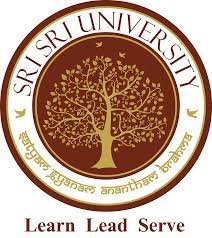
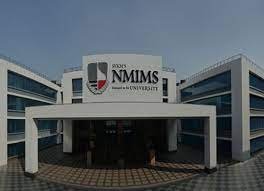
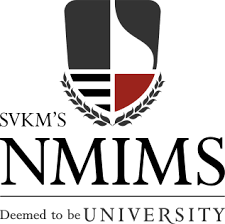

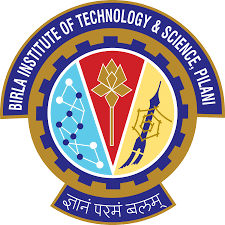
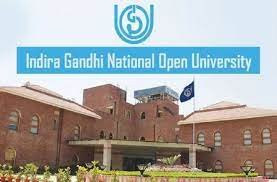

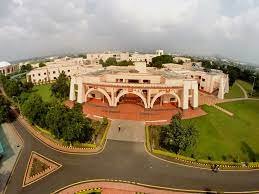

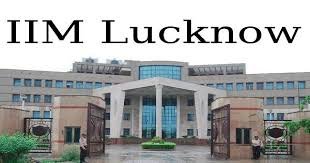
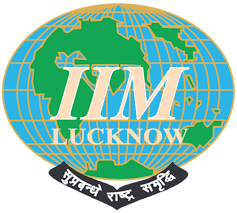
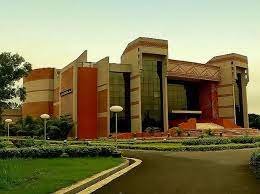
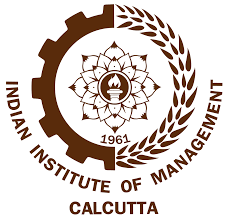


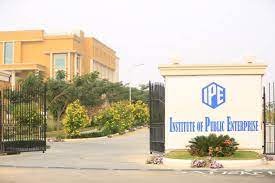
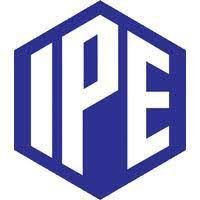

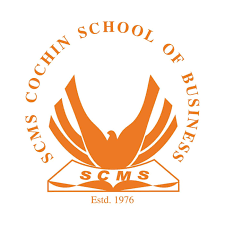

 back
back